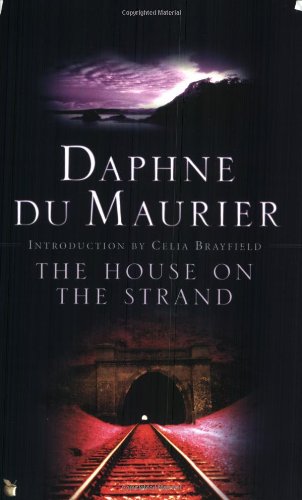
What better way of spending a Sunday evening than curled up in bed, with a box of the world's best chocolates, and a Daphne du Maurier? Well, possibly if the book wasn't The House On The Strand...
Yes, I know that's harsh, but if you compare this book to the likes of Rebecca or My Cousin Rachel, it falls well short. Possibly, that's where I, as a reader, fell short - setting high expectations on a relatively obscure book by a fairly renowned author. Blame the gist on the back of the book for that though - after all, a story about time-travel always has potential.
So, when Dick Young, takes a break from reality in his friend's (Magnus) Cornwall house, things get interesting as he agrees to be the guinea-pig for a drug developed by Magnus that results in him walking the streets of Cornwall in the thirteenth century, things are bound to get interesting. Dick's looking for an escape, as he tries to figure out the next steps in his marriage and career, and Magnus is curious to see what happens with this magnificent drug that he's created, and how different people react to it.
The first couple of "trips" introduce him to a myriad of characters who were alive in the High Middle Ages; co-incidentally, Magnus' first trip with this drug introduced him to the same people, so there definitely is something about the drug - but what is it? It's not LSD or any other hallucinogen - or, if it is, why do both friends encounter the same people with every trip?And what's the relevance of this era? Why is the drug always transporting them back to the same period, and showing them the lives of characters who have no real historical importance?
Initially, I read each page eagerly, trying to figure out the hows and the whys. But instead, I was introduced to way too many characters of the past, who I cared little about. The fact that Dick came across as a fairly flat protagonist didn't help - his character didn't really evolve, and his interactions with his wife, kids and Magnus left a lot to be desired. In fact, Magnus was the only character that was remotely interesting, but I don't think he featured enough.
As Dick swings between the present and the past, spending any free time he has in the past - even after his wife and children arrive - one marvels at both, the addiction caused by the drug and the commitment to the past that Dick has. Dick can't interact with the people he meets, nor can he make any difference. He's invisible; just a bystander, a viewer, someone who sits by and watches from the sidelines. Perhaps that's why he enjoys the past - there's no decision to make, everything just happens, in spite of him.
The ending, unfortunately, is predictable as well, which is a pity. I've come to associate Du Maurier with incredible twists and turns in her plots (yes, it only took two books to do that!), and when after a story that I found slightly tedious to read didn't even give me that, it added to the disappointment.
Don't get me wrong - I'm glad I read the book, and I will try reading Du Maurier's entire backlist in good time. I just do wish though, that the magic it weaved completely pulled me in, and left me awed for weeks after. It was not meant to be.